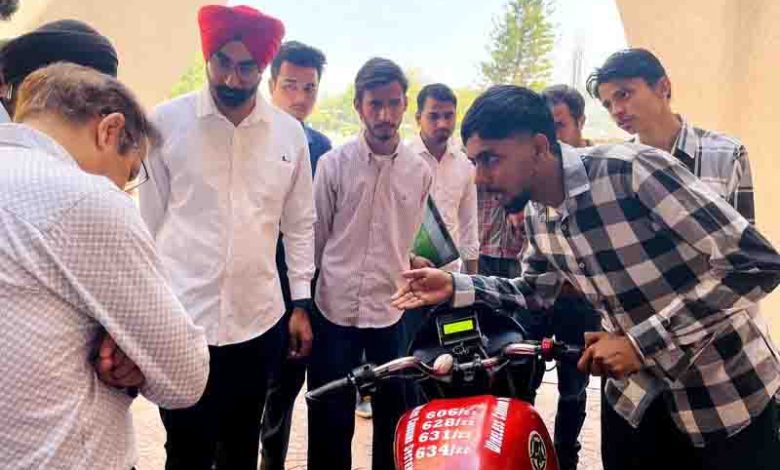Jalandhar: Polytechnic students pioneer wireless EV charging

Jalandhar: Electric vehicles (EVs) are witnessing a steady rise in sales as they have low gas emissions. However, slow technological advancements in battery systems are restricting their widespread acceptance. Buyers are worried that their EVs might die mid-journey. To address this problem, students of Diploma in Automobile Engineering course at Mehar Chand Polytechnic College, Jalandhar have developed a project titled Next-Gen Wireless Charging: Efficient and Smart Power Transfer. The project recently bagged the first prize at Inno-Tech organised by Pushpa Gujral Science City on the occasion of its 20th Annual Day. The project team comprised students Rajnish Sharma, Shivam, Sahneet Suri and Gagandeep. They said its key features include wireless charging technology for two-wheelers, efficient power transfer with minimal energy loss and a smart charging system with inbuilt safety features. The students were guided by project in-charge Varinder Singh. Explaining the concept, Shivam said, “The biggest advantage of our device is that it does not require plug and play, and hence, does not require earthing. Two receiver coils have been attached underneath the vehicle to maximize the charging power.
The vehicle just has to be parked near the wireless charging system and no physical contact is required for charging. Also, the system is portable as it can be separated into two-three parts and carried along for use in between.” Shivam added, “We have used a five-inch coil, but if a 10-12-inch coil is used, it can charge an electric car as well. The device cost around Rs 12,000, but considering its benefits, it proves to be worth the investment. We had to buy several components to build the charger, including the receiver coil, transmitter coil, current sensor, voltage sensor, transmission track, AC to DC converter with overcharging protection, and LCD display.” The students said they plan to develop the project further. “There is the possibility of creating a wireless charging system that transmits electricity through the air using radio waves, microwaves or lasers, which can charge multiple devices in a room. In the coming years, technological advancements could enable roads to be equipped with charging coils so that EVs can be charged while driving, reducing the need for frequent stops. Further innovation could lead to the creation of furniture with built-in charging capabilities. Our future desks, tables and kitchen counters could feature wireless charging, allowing small sensors, smartwatches and wearables to charge automatically without cables.”





